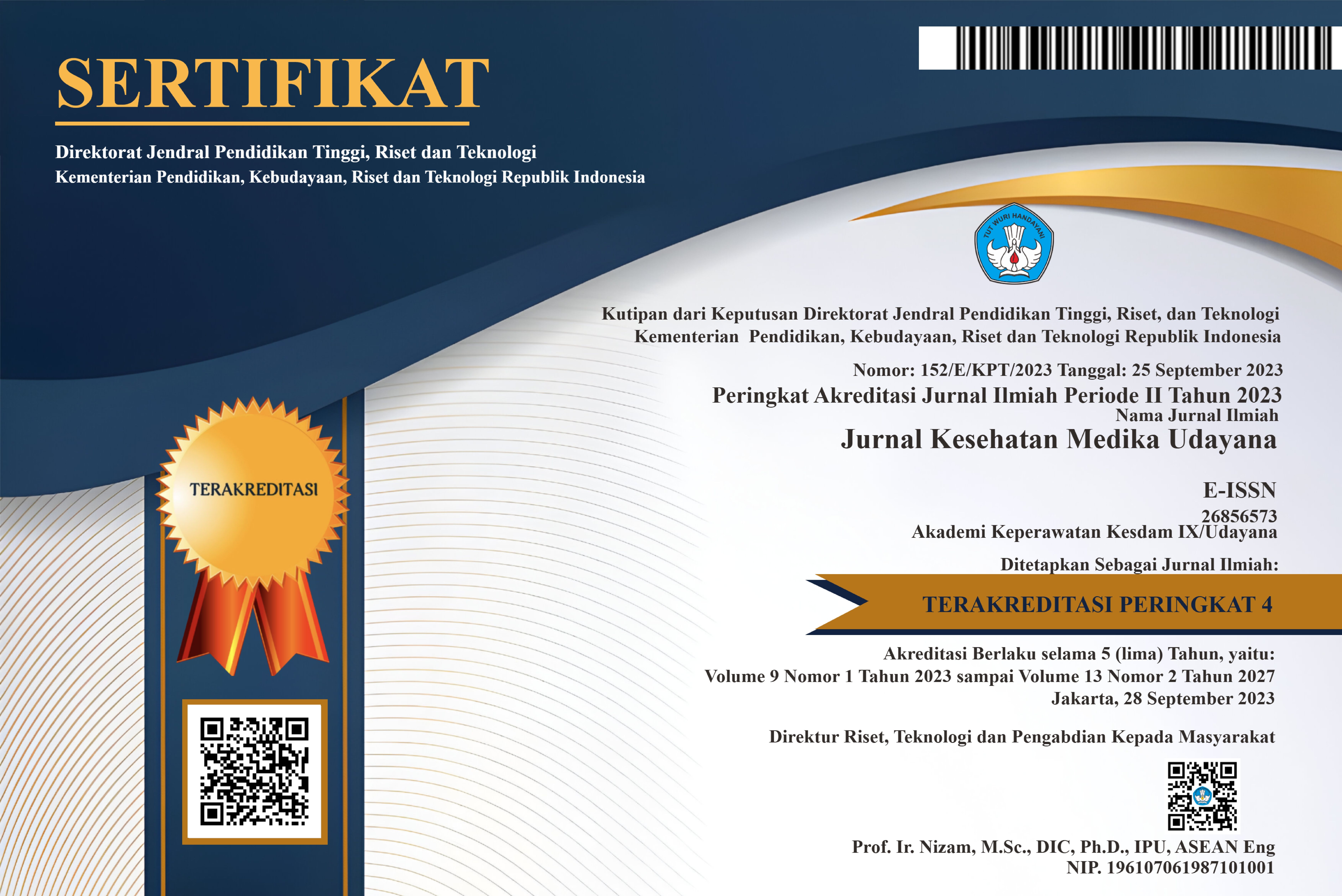HUBUNGAN PENGETAHUAN DAN SIKAP REMAJA PUTRI TERHADAP PENCEGAHAN KANKER SERVIKS MELALUI VAKSINASI HUMAN PAPILOMA VIRUS (HPV) DI SMK PGRI 3 DENPASAR
DOI:
https://doi.org/10.47859/jmu.v5i2.152Keywords:
Attitude, HPV vaccination, Knowledge, Teenage girlAbstract
Background: Globally, cervical cancer ranks fifth and ranks second in all cancers in women in Indonesia. One of the factors that influence the incidence of cervical cancer is the age of first sexual intercourse. About 33.3% of female adolescents started dating when they were not yet 15 years old, at that age it was feared that they did not have adequate life skills, so they were at risk of having unhealthy dating behaviors such as premarital sex. Providing information related to HPV vaccination can increase their knowledge so that it will affect how young women behave towards prevention of cervical cancer through HPV vaccination. This study aims to determine the relationship between knowledge and attitudes of young women to prevent cervical cancer through HPV vaccination. Methods: The cross sectional survey was conducted on 269 people. Data was collected in December 2016-January 2017 using questionnaire. Bivariate data analysis using Rho Spearman test to determine the relationship between knowledge and attitudes of young women to prevent cervical cancer through HPV vaccination. Results: The results showed that there was a significant relationship between knowledge and attitudes of young women towards the prevention of cervical cancer through HPV vaccination with p values <0.05 and r = 0.859. Conclusion: The attitude of young women towards the prevention of cervical cancer through HPV vaccination is related to the knowledge possessed by the teenager.
Keywords: Attitude; HPV vaccination; Knowledge; Teenage girl
References
Aswar, S. (2013). Sikap manusia, teori dan pengukurannya. Yogyakarta: Pustaka Pelajar Offset
Baron, Robert A & BD. (2004). Psikologi sosial. Jakarta: Erlangga
Bustan. (2008). Epidemiologi Penyakit Tidak Menular. Jakarta: PT. Rineka Cipta
Kementerian Kesehatan RI. (2006). Panduan Penatalaksanaan Kanker Serviks. Jakarta: Panduan Penatalaksanaan Kanker Nasional
Kementerian Kesehatan RI. Infodatin Reproduksi Remaja. Jakarta: Kementerian Kesehatan RI.
Ningsih DPS, Pramono D & Nurdiati DS. (2016). Faktor-faktor yang Berhubungan dengan Kejadian Kanker Serviks di RSUP Dr. Sardjito Yogyakarta. Berita Kedokteran Masyarakat
Notoatmodjo. (2007). Promosi kesehatan dan ilmu perilaku. Jakarta: Rineka Cipta
Rachmani B, Shaluhiyah Z. (2012). Sikap Remaja Perempuan Terhadap Pencegahan Kanker Serviks Melalui Vaksinasi HPV di Kota Semarang. Media Kesehat [Internet].[cited (2016) Nov 6]; Available from: http://ejournal.undip.ac.id/index.php/mkmi/article/view/6161
Setyarini E. (2009). Faktor- faktor yang Berhubungan dengan Kejadian Kanker Leher Rahim di RSUD Dr. Moewardi Surakarta. Skripsi: Universitas Muhammadiyah Surakarta
Sugiyono. (2014). Metode penelitian kuantitatif, kualitatif, dan kombinasi (mixed methods). Bandung: Alfabeta
Wijaya D. (2010). Pembunuh Ganas Itu Bernama Kanker Serviks. Yogyakarta: Sinar Kejora







